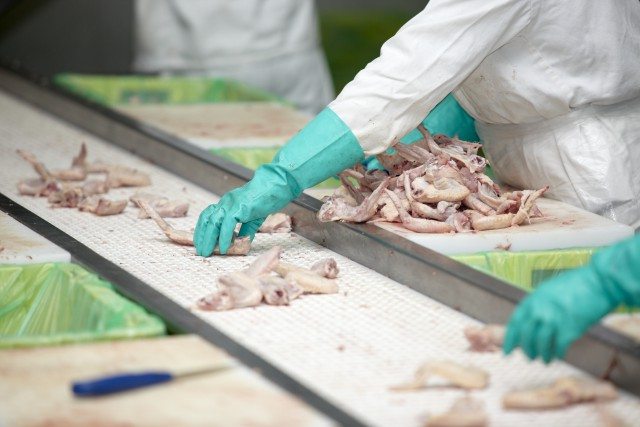Cargill will introduce the SonoSteam process at its Hereford primary chicken processing plant in the UK, as part of its farm-to-fork action plan to tackle Campylobacter by end of 2015.
SonoSteam, a process developed by the Danish company Force Technology, uses a combination of steam and ultrasound to kill microorganisms such as Campylobacter on the skin and internal cavities of chicken.
“Cargill takes its responsibility for food safety very seriously, and we know that reducing Campylobacter levels requires interventions across the whole supply chain,” says Chris Hall, fresh chicken director for Cargill Meats Europe.
“We focused initially on our farms and primary processing and analyzing our results in the first half of this year we have seen an improvement year on year of approximately 38%. However there is still more to do.”
“We have been following the development of new technologies very closely and made the commitment that we would adopt one as soon as it proved effective. We are very excited to be taking these next steps with Force Technology.”
“SonoSteam has only just recently been introduced as a technological intervention against Campylobacter but has already been used to process millions of birds in the UK alone,” says Niels Kreb, VP for Force Technology.
Over the last two years, Cargill has invested more than £35 million (US$54.5 million) to improve efficiencies and upgrade technologies in its processing plant in Hereford.
A number of these investments have enhanced Cargill’s commitment to reducing Campylobacter levels including the installation of a £11 million chiller and an ultraviolet light finished pack decontamination equipment.










